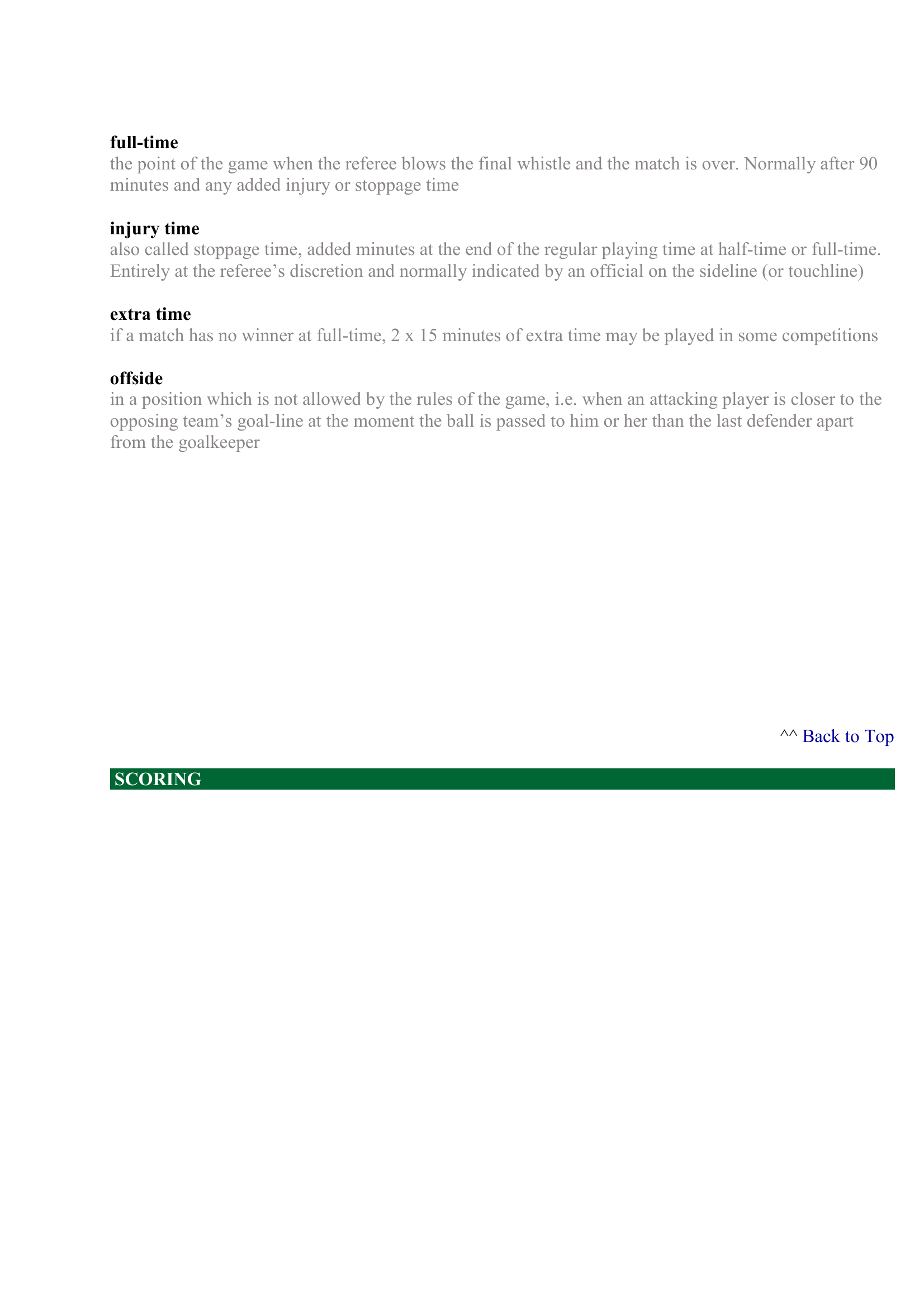FOOTBALL a match two teams playing against each other in a 90-minute game of football a pitch the area where footballers play a match a referee the person who makes sure that the players follow the rules.
Publié le 05/04/2015

Extrait du document


«
full-time
the point of the game when the referee blows the final whistle and the match is over.
Normally after 90
minutes and any added injury or stoppage time
injury time
also called stoppage time, added minutes at the end of the regular playing time at half-time or full-time.
Entirely at the referee’s discretion and normally indicated by an official on the sideline (or touchline)
extra time
if a match has no winner at full-time, 2 x 15 minutes of extra time may be played in some competitions
offside
in a position which is not allowed by the rules of the game, i.e.
when an attacking player is closer to the
opposing team’s goal-line at the moment the ball is passed to him or her than the last defender apart
from the goalkeeper
^^ Back to Top
SCORING.
»
↓↓↓ APERÇU DU DOCUMENT ↓↓↓
Liens utiles
- Penates Roman Each household had two Penates, spirits or gods who protected the family storeroom.
- Quantum Theory I INTRODUCTION Quantum Theory, in physics, description of the particles that make up matter and how they interact with each other and with energy.
- Cyprus is an island divided in two where two communities have opposed each other for more than twenty years.
- Seven Against Thebes Greek The name given to the conflict between the rulers of the kingdom of Thebes and the rebels who challenged the king for the throne.
- Ladon Greek The dragon who guarded the garden where the apples of the Hesperides were kept.












